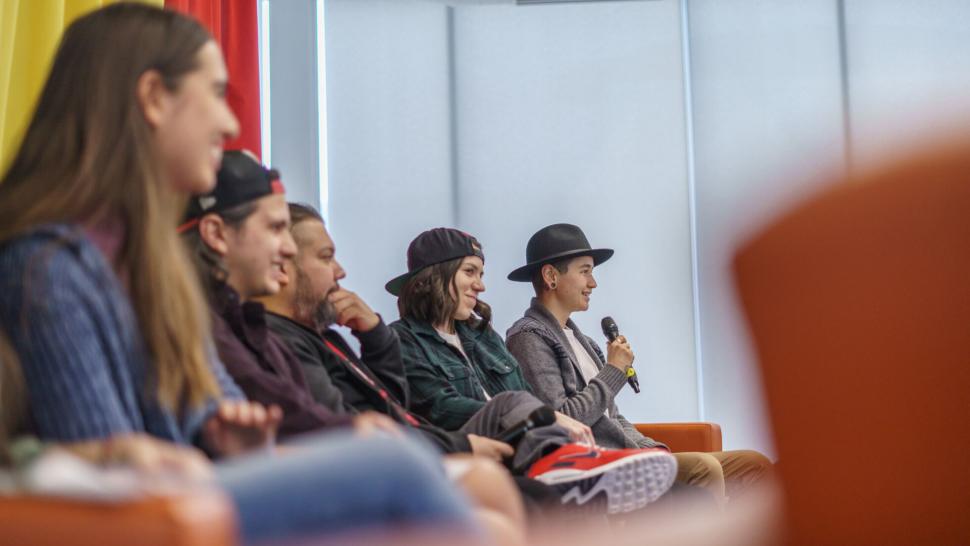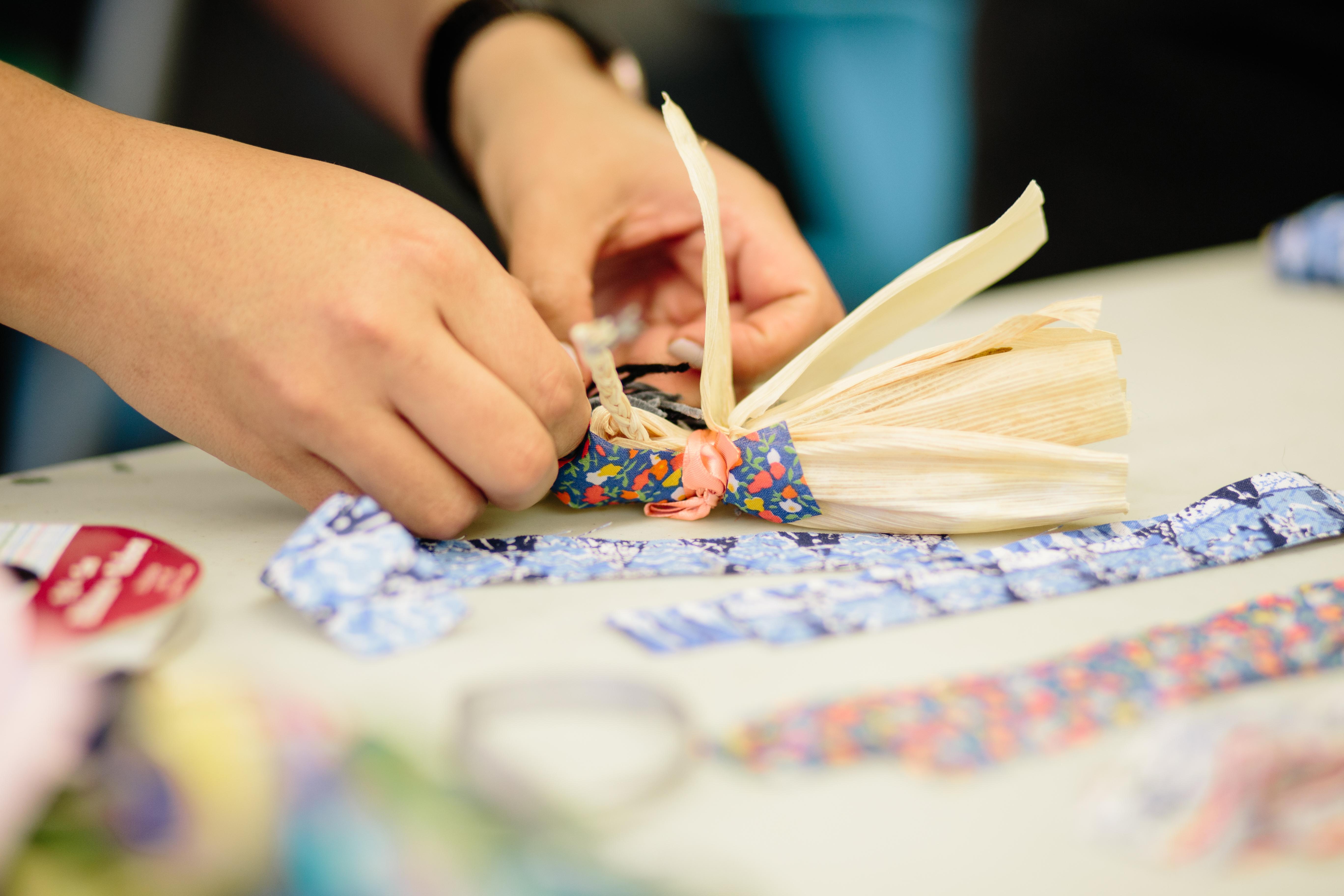
November is recognized each year as Indigenous Education Month and it’s an opportunity for Canadians to reflect on the histories, cultures, and contributions of First Nations, Inuit, and Métis peoples.
Humber College is committed to recognizing and celebrating Indigenous cultures, histories, and knowledges in its academic programming, events, professional development, and other initiatives. Each November, the College hosts the annual Indigenous Knowledges Gathering (IKG) event organized by Indigenous Education and Engagement (IE&E).
Kaitlyn Nicole Chapman, Indigenous community engagement coordinator with IE&E, said the IKG is popular with more than 1,600 people expected to take part online and in person from November 15 to November 17. Chapman said cultural continuity through the sharing and preserving of traditions is just one important aspect of the IKG and that it’s a safe space to actively engage in meaningful conversations.
As she notes, the theme for this year’s event is What Our Ancestors Know: Teaching and Learning Through Storytelling. Those who attend will hear the unique perspectives and traditional knowledges that exist across Indigenous nations.
Chapman said there will be opportunities to hear from leaders as they share the importance of truth and autonomy in storytelling and education. Through panels, keynote talks and workshops, those who attend will learn from Indigenous Knowledge Keepers and members of the Humber community.
She added that the hope is to build and offer meaningful opportunities for Humber audiences to participate and learn about culturally relevant topics and traditions. Also, it’s to connect them with the tools, strategies, and perspectives that can equip attendees to create positive change in their respective industries, education fields and personal lives.
Indigenous alumni who have made their mark in the media industry will share their perspectives as part of the Rising Storytellers: Voices of this Generation virtual alumni panel on November 15.
Indigenous faculty will participate in The Stories We Tell: Indigenous Orality and Storytelling Panel on November 16. Humber Early Childhood Education (ECE) Professor Louise Zimanyi, who doesn't identify as Indigenous, will take part in that panel. Zimanyi co-wrote the book Walking Together with Mi’kmaw Elder Albert Marshall that introduces readers to Etuaptmumk, or Two-Eyed Seeing, which is the gift of multiple perspectives in the Mi’kmaq language.
Chapman said Zimanyi is a good example for those looking to foster and maintain relationships with Indigenous communities.
The RBC-Grad Ready IKG Networking Night happens November 16.
Robin Wall Kimmerer, the author of Braiding Sweetgrass who spoke at the official opening of Humber’s Medicine Garden earlier this summer, will deliver the Learning to Speak the Lands Language: A Keynote on Land Based Storytelling on November 17. Kimmerer will share her knowledge of traditional medicines and explore the gifts and stories that are available outdoors.

There are also a series of traditional teaching workshops by Indigenous Knowledge Holders. These include Beading by House of Groulx, Basket Making by Mark Sault, Cornhusk Doll Making by Patricia Chrisjohn, Painting with Patrick Hunter and Indigenous Journalism and Storytelling by Kelly Boutsalis.
Chapman said it was important for them to present a diversity of voices. They have speakers and panelists from many Indigenous nations.
IE&E has been integral in incorporating Indigenous Ways of Being, Knowing and Doing into Humber's everyday operations and overall strategies and plans. Under their guidance, Humber continues to strengthen its commitment to Truth and Reconciliation.
Those planning to attend can register in advance by visiting the IKG’s Eventbrite page.